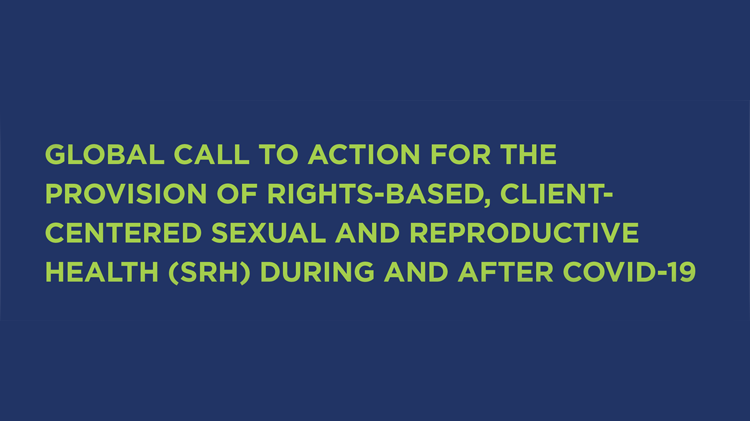The global health community reaffirms its commitment to ensuring rights-based, clientcentered SRH services, including the full range of available contraceptive methods, HIV/STI prevention, testing, and treatment, and cervical cancer services during and after COVID-19.
The COVID-19 pandemic poses unprecedented challenges to health systems around the world as governments mobilize limited resources to fight the pandemic. Resources needed to mitigate the effects of COVID-19 are likely being reallocated from other health services. At the same time, women and adolescent girls – who are already vulnerable to unintended pregnancy, gender-based violence, HIV and other sexually transmitted infections (STIs), and cervical cancer – now face amplified vulnerabilities due to affected or limited access to sexual and reproductive health (SRH) services that are often parceled between different providers and service delivery points. The ECHO study findings are another stark reminder that women, and especially adolescent girls, remain highly at risk of acquiring HIV infection and other STIs, and their comprehensive health needs are not being met.
In line with recommendations and definitions outlined by the World Health Organization, governments should maintain essential sexual and reproductive health services throughout the response to the COVID-19 pandemic. This includes, but is not limited to, family planning and prevention and treatment of HIV and other STIs, including those that lead to cervical cancer. The COVID-19 pandemic will continue to affect global health systems in the long-term, intensifying the need to move toward more efficient and cost-effective forms of service delivery during and post-pandemic. Providing a package of rights-based, client-centered SRH services that better meet the needs of women and girls will streamline service delivery for both client and provider, while also eliminating the need for multiple facility visits, decreasing exposure of clients and providers to COVID-19 and alleviating stress on the health system.
Now is the time to reaffirm our commitment to supporting integrated family planning, HIV/STI, and cervical cancer services – all of which are essential to more comprehensive SRH service provision – that are grounded in rights-based principles and responsive to the needs of all clients, regardless of age, HIV status, marital status, or parity.
